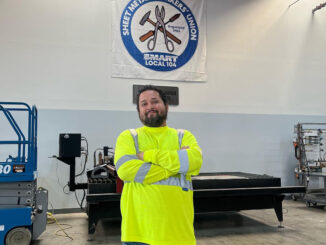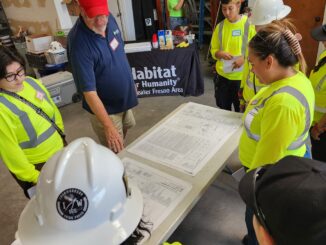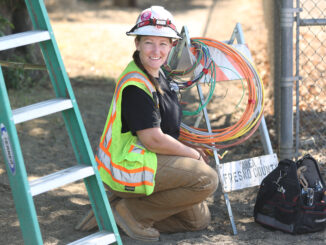
ValleyBuild and Community Colleges Collaborate
by Whip Villarreal
The Fresno Regional Workforce Development Board has intensified efforts to enhance its ValleyBuild training program by partnering with colleges across the region, providing participants with more opportunities for career transitions.
ValleyBuild, a course based on the Multi-Craft Core Curriculum (MC3), covers 14 counties throughout the Central Valley. The program equips participants with skills such as electrical work, heavy equipment operation, forklift operation, and OSHA training, bridging the gap between the demand for skilled workers and the available workforce.
These efforts are prompted by an aging workforce and a rapidly expanding need for workers in the construction sector, making the demand for skilled apprentices across all trades increasingly urgent. California’s Central Valley is particularly feeling the impact, with a significant number of unfilled construction jobs contributing to various economic challenges including higher housing costs, infrastructure decay, and missed opportunities for career advancement.
“Not only are we getting them the training to be workforce ready, but it is also huge for the economic potential for these participants…”
Autumn Gardia, Director of Special Projects and Grants at Merced College
Fresno City College is one institution partnering with ValleyBuild to align its training with community college standards, allowing graduates of the training program to earn college credit. Dr. Becky Barabe, Dean of Applied Technology at Fresno City College, says that the MC3 curriculum offered at FCC is equivalent to ValleyBuild’s training course, providing participants and students the opportunity to continue their education in various construction and trades programs.
In the past, applicants for leadership and management roles in the trades typically did not need academic credits or transcripts. “But credits and degree certificates are starting to become more of a desired qualification,” Barabe explains. “Now we are trying to assist workers with this education because of the increased standard for journeymen in the field and ultimately help with their leadership and management development.”
The MC3 curriculum proposal has already been approved by its local curriculum committee last April and is pending approval by the state chancellor’s office. Once approved, Barabe expects ValleyBuild participants will be able to request college credit in the fall through a process called credit through prior learning. Both past and future graduates of the ValleyBuild MC3 curriculum can request credit online. The college will confirm completion of the program before processing through admissions and records.
FCC is also in discussions to collaborate with area high schools to implement the MC3 program, enabling students that choose this career path to complete the course during their time in high school.
Merced College is also joining forces with the ValleyBuild program and is set to establish the first ValleyBuild co-located campus with a community college. The planning process for implementation on the campus is currently in its initial stages. Merced College already offers numerous construction-aligned and technical programs, including welding, HVAC, and industrial electrical. ValleyBuild will utilize the college’s facilities and lab space for the MC3 curriculum.
“We are really excited for the opportunity to offer the training to folks here in our local community and also be able to offer them credits for the training as well,” said Autumn Gardia, Director of Special Projects and Grants at Merced College. They plan to launch the first cohort in January of 2025 and will be working with various partners such as labor unions to finalize the details.
“Not only are we getting them the training to be workforce ready, but it is also huge for the economic potential for these participants from where they start to where they can end up.” Education can lead to management and supervisory positions, which in turn will have a positive economic impact on the community.
For more information about ValleyBuild’s programs, visit them online at valleybuild.net or call 855-805-7245.



